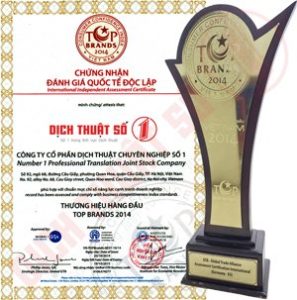French attracts many young people by its romantic, melodious melody and attractive career opportunities. So study Is French difficult??
The following article by No.1 Translation will answer in detail from A-Z for you, thereby helping you have an overview of this language.
Is learning French difficult?
French (le français, IPA: [lə fʁɑ̃sɛ] is a Romance language (of the Indo-European family). As a language with a long history in Europe, French is quite complex with many strict rules. Similar to other languages, is learning French difficult is always a question of interest to many people.
French vocabulary
Mastering vocabulary is the first and most important step to using French effectively. French is an inflectional language, meaning that each word can change its form to express different functions and meanings. For example, the word “étudiant” refers to the profession “student” or a male student, while “étudiante” refers to a female student. Remembering these changes and using them correctly is one of the challenges that French learners have to overcome.
To be able to communicate in French naturally in everyday life, studies show that you need to master about 3000 words. This number is not small, requiring you to have a scientific and reasonable study plan to achieve this goal.
>>> See more: 1000+ Most Common French Words for Beginners

French Grammar
Learning French grammar is a big challenge because of its complexity and bulk.
One of the difficulties is classifying nouns by gender (masculine/feminine). Each noun has its own gender, which affects how the accompanying complements change. Determining the gender of a noun is not always easy, as there are many exceptions that need to be learned by heart.
The French verb system is also challenging with 3 main verb groups. Of which, verb group III is the most complex group, including small groups with complex structures, leading to more difficult verb conjugation. In addition, some special verbs such as “être” (to be), “avoir” (to have), “aller” (to go) have separate conjugations, not belonging to any verb group.
Finally, the French verb tense system is also different from English. Instead of 12 verb conjugations in 3 tenses and 4 moods like English, French has 7 moods, 3 tenses and 3 types of structure, creating more layers of meaning and diverse usage.
French pronunciation
Unlike English, French has a fairly regular and easy-to-understand pronunciation system. Each rhyme scheme usually has a corresponding pronunciation, with few exceptions. With a good grasp of the pronunciation rules and the ability to separate syllables when reading, you can read most French words with confidence.
In addition, Vietnamese has some vocabulary that sounds similar to French such as “soap” (savon), “roof” (tole), “gloves” (gants)…, helping Vietnamese people easily get used to French pronunciation.
Should I learn French?
French is the official language of 29 countries around the world and is widely used in international organizations such as the United Nations. It is the language of culture, art, cuisine and fashion. Learning French helps you understand and experience the unique cultural values of France and French-speaking countries. However, the choice to learn French or not depends on your job, interests and abilities.
French is considered quite difficult to learn. If you have learned another Latin language such as Spanish, Italian or Portuguese, you will find French easier to learn. Besides, perseverance and the desire to learn French will help you overcome any language difficulties.

French learning experience for beginners
Learning French is a challenging but exciting journey. Here are some tips for beginners:
1. Choose the right learning method:
Studying with textbooks: There are many French learning materials for beginners such as Assimil, Michel Thomas, Colloquial French, etc. The advantage of this method is that the knowledge system is systematic and easy to follow.
- Online Learning: There are many effective websites and applications for learning French such as Duolingo, Memrise, Babbel, etc. The advantages of this method are that it is flexible, accessible and highly interactive.
- Learn with a teacher: Studying directly with a teacher will help you pronounce correctly, correct grammar mistakes and improve communication skills quickly.
- Self-study: You can learn by yourself by watching movies, listening to music, reading books, participating in French forums, etc. However, this method requires self-discipline and perseverance.
>>> See more: Top 10 Best and Free French Learning Apps Today
2. Make a clear study plan:
- Identify learning goals: How long do you want to achieve your level?
- Make a specific study plan: How long should I study each day, what should I study, what methods should I use, etc.
- Start with the basics: You should learn basic grammar, vocabulary, and pronunciation before learning advanced knowledge.
- Practice regularly: You should spend time every day reviewing your lessons, reading French books and newspapers, watching movies, listening to music, etc.
3. Some tips for effective learning:
- Focus on correct pronunciation: Listen and imitate native speakers' pronunciation, use pronunciation support applications.
- Learn French vocabulary by topic: You should learn vocabulary by topic such as family, work, travel, etc.
- Practice writing and speaking: Keep a diary, write essays, attend French conversations.
- Find a study buddy: Studying in groups, exchanging knowledge, and correcting each other's mistakes will help you progress faster.
- Seek support: If you have difficulty, refer to the documentation, ask your teacher or friends.
- Be persistent and stay motivated:Remember that learning French is a long process that requires perseverance and motivation.

French is not difficult with Number 1 Translation
Are you wondering whether French is difficult to learn? Do you need to learn French to translate or communicate with foreigners?
With Translation Number 1, French is not difficult at all. Our team of translators all possess French certificates, have a deep understanding of French grammar, vocabulary and culture, and specialize in specific fields. Accordingly, if you need translation French translation accurate, high quality, contact right now Translation Number 1.
With our knowledge and professional experience, we are committed to bringing you the best French translation Accurate, natural and professional, helping you approach French more easily and effectively than ever before.
Are some questions related to French difficult?
Which is more difficult French or English?
The difficulty of French and English depends on many factors, including your native language, language learning experience, motivation to learn, and learning methods. However, French can be more difficult than English because of its complex phonetic system, different grammar for gender, number, and tense, and significant differences in vocabulary.
Which is more difficult French or German?
Both German and French have their pros and cons. However, German is considered to be more difficult to learn than French, especially in terms of grammar and pronunciation. However, the difficulty of each language will vary depending on each person's language learning ability and learning goals.
>>> See more: Should I Learn German Or French For Easier Learning?
Above, the article has answered your question. Is French difficult?. Hopefully the above information will help you have an overview of French, from which you can have an effective learning method.
CONTACT INFORMATION:
- HANOI OFFICE
- Address: 46 Hoang Cau
- Phone: 0243.784.2264 – 0243.519.0800
- E-mail: hanoi@dichthuatso1.com
- HO CHI MINH CITY OFFICE – FACILITY 1
- Address: 187A Cach Mang Thang 8, Ward 4, District 3
- Phone: 028.62.60.86.86 – 028.62.96.7373
- E-mail: saigon@dichthuatso1.com
- HO CHI MINH CITY OFFICE – FACILITY 2
- Address: 166A Vo Thi Sau, Ward Vo Thi Sau, District 3
- Phone: 028.2253.8601 – 028.2253.8602
- E-mail: hcm@dichthuatso1.com
- HO CHI MINH CITY OFFICE – FACILITY 3
- Address: 345 Nguyen Trai, Nguyen Cu Trinh Ward, District 1
- Phone: 028.6286.4477 – 028.627.666.03
- E-mail: hcm@dichthuatso1.com
- DANANG OFFICE
- Address: Room 4.2.3, 4th Floor, DanaBook Building, 76 Bach Dang
- Phone: 0236.62.76.777 – 0236.62.78.777
- E-mail: danang@dichthuatso1.com








